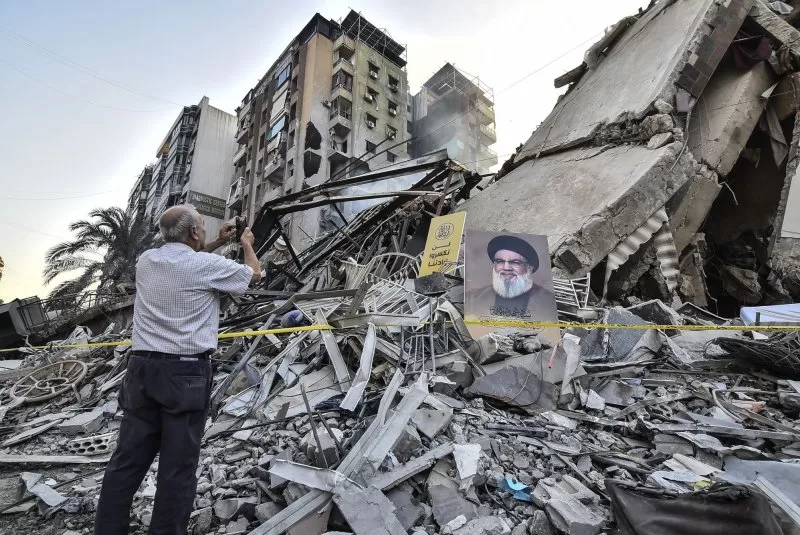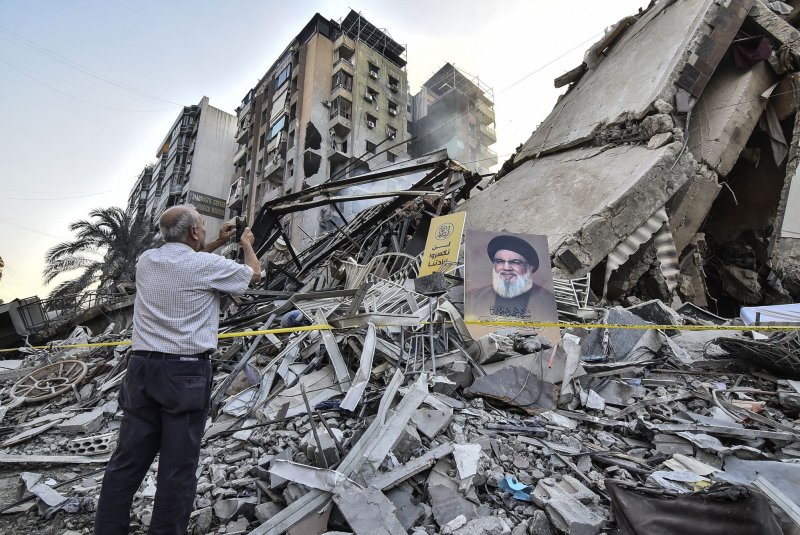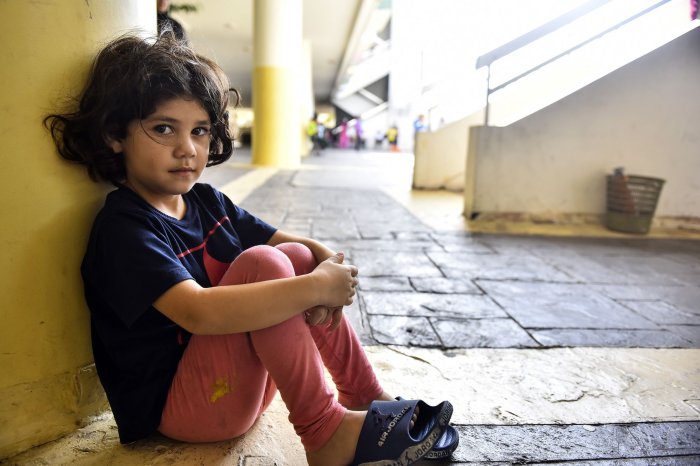A man takes a picture of a portrait of slain Hezbollah chief Hassan Nasrallah in front of the rubble of a building at the site of an Israeli airstrike in Beirut’s southern suburbs on Thursday. Waves of IDF airstrikes targeting Hezbollah were launched against the area again on Saturday. Photo by Fadel Itani/UPI |
License PhotoNov. 16 (UPI) — The Israeli military continued an intense wave of airstrikes against Hezbollah targets in Beirut’s southern suburbs on Saturday, including an attack on the militant group’s headquarters in the Dahiya area.
The Israel Defense Forces said it unleashed eight separate waves of strikes against Hezbollah installations south of Beirut beginning Friday morning and continuing through late Saturday, targeting what it said were military sites that had been “deliberately placed by Hezbollah in the heart of the civilian population.”
The waves of strikes came as Hezbollah is considering a U.S.-Israeli cease-fire proposal and diplomatic efforts to end the conflict have ramped up.
In all, 20 Hezbollah sites were hit, the IDF said, including what it called the Iranian proxy militia’s headquarters in the Shiite Muslim neighborhood of Dahiya.
“Under the direction of the Intelligence Division, fighter jets of the Air Force recently completed another wave of attacks on military headquarters of the terrorist organization Hezbollah in the Dahiya area in Beirut,” the IDF announced.
Also targeted in the bombing wave were a weapons warehouse and “terrorist infrastructures.”
Late Saturday, the Israeli military issued fresh evacuation warnings for the areas of Hadath, Haret Hreik and Burj al-Barajneh in Beirut’s southern suburbs, according to Lebanon’s National News Agency.
Saturday’s attacks came after more than 160 “terrorist targets” were struck from the air on Friday, encompassing attacks on both Hezbollah in Lebanon and Hamas in Gaza. Among the targets were about 20 missile launchers, military buildings, weapons warehouses, “terrorist headquarters” and military infrastructure.
Meanwhile in southern Lebanon near the Israeli border, the IDF said its ground forces, including elite commando units, continued their advance against Hezbollah fighters in areas from which missiles were launched against Israeli towns, destroying underground munitions warehouses and “eliminating terrorists with precision weaponry.”
IDF Chief of Staff Lt. Col. Hertzi Halevi promised to keep up the pressure on Hezbollah in a statement released Saturday following a field tour of the conflict in the border area.
“Hezbollah has a very high price, with a chain of command that has collapsed, many dead operatives, destroyed infrastructure,” Halevi said. “This organization will continue to attack, we will continue to fight, we will continue to carry out plans, go further, attack in depth, hurt Hezbollah.”
The military chief also warned the IDF is keeping a close watch on Iran, Yemen, Iraq, domestic terrorism in Israel and in Gaza.
Meanwhile, Lebanese Parliament Speaker Nabih Berri, who is negotiating a cease-fire deal with the United States and Israel on behalf of Hezbollah, said Saturday he is reviewing the proposal.
Berri told the pan-Arab daily Asharq Al-Awsat a response to the proposal will come “very soon.” He also denied that the proposed deal would allow any freedom of movement by Israeli forces inside Lebanon.
A displaced Lebanese child sits inside the Omar Farroukh public school in Lebanon’s capital Beirut on October 15, 2024. Photo by Fadel Itani/UPI |
License Photo


